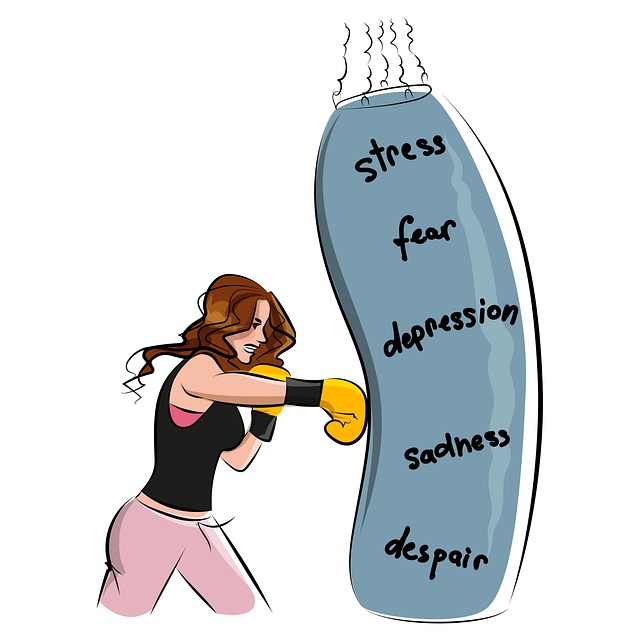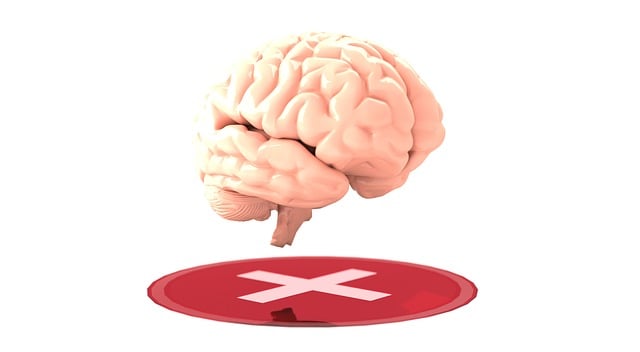Anxiety among young adults who have experienced abuse is a significant concern, requiring a nuanced approach. Effective treatments like Cognitive Behavioral Therapy (CBT) target negative thought patterns and provide safe spaces to process complex emotions. Mindfulness practices, including meditation and relaxation techniques, empower survivors to manage anxiety and improve emotional regulation. Community outreach programs focused on mental health education, mindfulness, and support networks enhance well-being and foster resilience among at-risk populations, specifically young adults abuse survivors. These holistic approaches transform lives by offering tailored coping mechanisms and building self-esteem, ultimately empowering individuals to overcome anxiety and build a promising future.
Anxiety management techniques are essential tools for young adults recovering from abuse, offering pathways to healing and improved well-being. This article explores evidence-based approaches tailored to their unique needs. We delve into understanding anxiety in this population, highlighting the impact of past trauma. Cognitive Behavioral Therapy (CBT) is introduced as a powerful tool for reframing negative thought patterns. Additionally, mindfulness practices and building resilient support networks are explored as effective strategies to manage and overcome anxiety.
- Understanding Anxiety in Young Adult Abuse Survivors
- Cognitive Behavioral Therapy (CBT): A Powerful Tool
- Mindfulness and Meditation Practices for Calm
- Building Resilience Through Support Networks
Understanding Anxiety in Young Adult Abuse Survivors

Anxiety is a common struggle among young adult abuse survivors, often stemming from complex trauma experiences. Understanding and managing anxiety in this demographic requires a nuanced approach that acknowledges their unique circumstances. Many survivors may have developed coping mechanisms to deal with past abuses, but these strategies can sometimes exacerbate anxiety symptoms as they navigate adulthood. Therapy for young adults abuse survivors focuses on helping them process and heal from traumatic events while learning effective methods to regulate emotions and reduce anxiety.
The Mind Over Matter principles offer a powerful tool for these individuals to take control of their mental health. By prioritizing self-care, mindfulness techniques, and cognitive reframing, they can challenge negative thought patterns associated with abuse. Depression prevention becomes more achievable when survivors are equipped with communication strategies to express their feelings and seek support from understanding peers and therapists. This holistic approach ensures that young adult abuse survivors receive the comprehensive care needed to overcome anxiety and build a brighter future.
Cognitive Behavioral Therapy (CBT): A Powerful Tool

Cognitive Behavioral Therapy (CBT) has emerged as a powerful tool for managing anxiety, particularly among young adults who may have experienced trauma or abuse. This form of therapy focuses on identifying and changing negative thought patterns that contribute to anxious behaviors and feelings. By challenging these distorted thoughts, CBT empowers individuals to develop healthier coping strategies and improve their overall well-being.
For survivors of abuse, CBT offers a safe space to process complex emotions and beliefs formed during traumatic experiences. Through structured sessions, clients learn to recognize unhelpful cognitive distortions, such as catastrophizing or all-or-nothing thinking, which can exacerbate anxiety. By replacing these with more realistic and balanced thoughts, CBT helps individuals build resilience and reduce symptoms of anxiety, fostering a sense of control and empowerment in their lives. Additionally, this therapy is often combined with other effective strategies like mindfulness exercises and relaxation techniques to enhance its benefits, especially within the context of community outreach program implementations aimed at promoting mental health education programs design for at-risk populations.
Mindfulness and Meditation Practices for Calm

For many young adults recovering from trauma or abuse, mindfulness and meditation practices can be transformative tools in their anxiety management arsenal. These techniques encourage individuals to cultivate present-moment awareness, a crucial aspect of healing and reducing anxiety. By focusing on the breath, bodily sensations, and surrounding environment, survivors can interrupt the cycle of anxious thoughts and gain a sense of calm. Regular practice may lead to improved emotional regulation and enhanced coping abilities, which are essential for navigating the challenges that often accompany trauma recovery.
Incorporating mindfulness into one’s daily routine, even just a few minutes each day, can be incredibly beneficial. Starting with simple meditation exercises, such as mindful walking or body scans, allows individuals to develop self-care routines centered around mental well-being (Self-Care Routine Development for Better Mental Health). This proactive approach is aligned with the mind over matter principles, empowering survivors to take control of their anxiety and foster a sense of resilience. Additionally, exploring community outreach program implementations focused on mindfulness can provide further support and a sense of belonging for those seeking therapy for young adults abuse survivors.
Building Resilience Through Support Networks

Building resilience is a crucial aspect of managing anxiety, especially for young adults who have experienced trauma, such as abuse survivors. Support networks play a pivotal role in this process. Connecting with peers who share similar experiences can create a sense of belonging and understanding, fostering an environment where individuals feel safe to express their fears and anxieties openly. This shared experience can lead to the development of coping mechanisms tailored to their unique struggles, enhancing emotional well-being promotion techniques.
Therapy for young adults abuse survivors often emphasizes the importance of cultural sensitivity in mental healthcare practice. Support groups cater to diverse backgrounds, ensuring individuals feel respected and heard. This inclusive approach encourages self-esteem improvement by challenging negative beliefs and providing a platform for personal growth. Through these networks, survivors can navigate their anxiety with strength and resilience, ultimately transforming their lives.
Anxiety management techniques are invaluable tools for young adult abuse survivors, offering pathways to healing and improved well-being. By combining cognitive behavioral therapy (CBT) with mindfulness practices, support networks, and building resilience, individuals can effectively navigate their past traumas and foster a sense of calm. These strategies empower survivors to take control of their mental health, ultimately enhancing their ability to thrive in today’s world. For those seeking therapy for young adults abuse survivors, these techniques provide a comprehensive approach to overcoming anxiety and embracing a brighter future.














